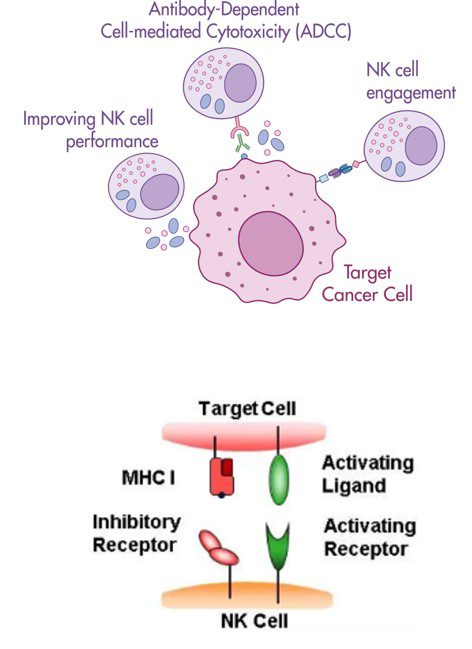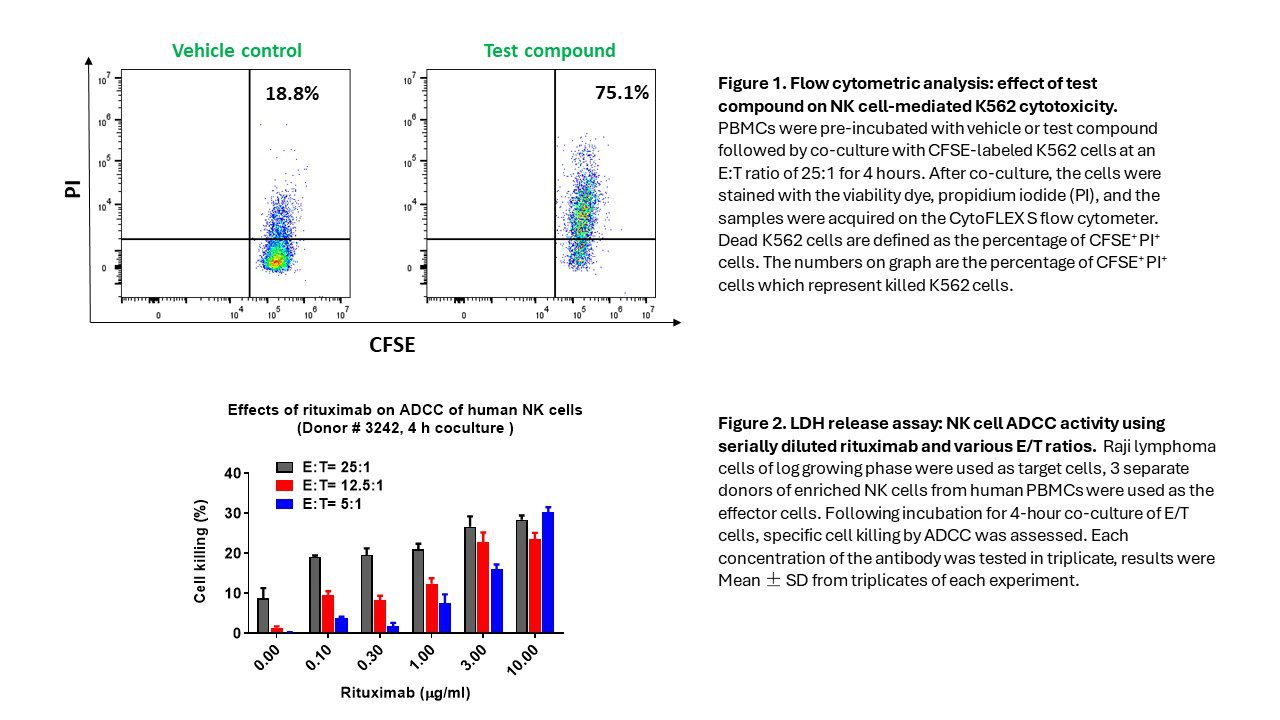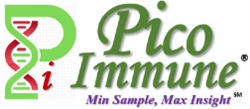Human NK Cell Assays
Natural Killers
Natural Killer (NK) cells are lymphocytes involved in the innate immune system that respond to infected and tumor cells, thereby limiting these pathologies. NK cells function as both cytotoxic effectors and regulators of immune responses. Despite sharing a common lymphoid lineage with T and B cells, NK cells do not require prior sensitization to specific antigens; instead, they independently recognize and eliminate target cells.
NK cell activity relies on the activation or inhibition of NK cell receptors by external signals. They function through a delicate equilibrium of activating and inhibitory signals, engaging in vigilant surveillance of the body's cells. NK cells are activated upon detecting abnormalities in target cells, such as MHC class I expression loss or up-regulation of stress-induced ligands. This typically occurs in response to infection or malignant transformation. Upon activation signals triggering or absence of inhibitory signals, NK cells exert their effects by releasing cytotoxic granules, expressing death ligands, driving ADCC, and producing cytokines, thereby playing a crucial role in early immune defense and regulation. The ability of NK cells to specifically eliminate stressed cells while maintaining tolerance towards healthy ones has led to compelling suggestions regarding their therapeutic potential as anti-cancer agents.
Therapeutic potentials of NK cells have attracted significant attention, and researchers are actively exploring various strategies to harness their efficacy for clinical applications. Adoptive NK therapy involves the isolation, expansion, and ex vivo activation of NK cells followed by infusion into patients, presenting a promising approach for the treatment of specific types of cancers. Furthermore, there is ongoing investigation in engineering NK cells to enhance their cytotoxicity and persistence, particularly through the utilization of chimeric antigen receptors. Additionally, NK cells can be employed in the context of hematopoietic stem cell transplantation to improve outcomes and reduce complications. Moreover, continuous research is uncovering pharmacological methods to modulate NK cell activity, thereby opening avenues for the development of novel immunotherapies.

NK Cell Killing Strategies for Immunotherapy
Several strategies aim to improve tumor reduction via NK cell killing:
- Enhancing NK cell killing performance by augmenting NK cell function
- Antibody-dependent cellular cytotoxicity (ADCC)
- NK cell engagement via bi-specific molecules
- Increasing the number of NK cells in patients by adoptive transfer
PicoImmune's NK Cell Assays
- NK phenotyping and activation flow cytometry assays
- NK cell cytokine production by intracellular flow cytometry or Luminex
- NK cell proliferation assays
- Target expression on NK cells
- Modulation of activation and killing (CD69, CD25 expression, Fas ligand, granzyme secretion)
- ADCC: flow cytometry or DELFIA-based
- NK cell killing mediated by NK cell engager molecules
Additional Information
PicoImmune offers a versatile suite of immuno-oncology assay setups. Since every project is different, we enable a customized study layout with various options for immune cells, target cells, or readouts. Please inquire about further customization requirements to tailor an assay specific to your research needs.
Options for immune cells: PBMCs or isolated NK cells
Options for target cells: human or murine tumor cells; 2D or 3D cell culture
Learn More
Please contact us for our various data examples for NK, PBMC, or γδ T cell-mediated cytotoxicity.
NK Cell Activity Assay Example Data

